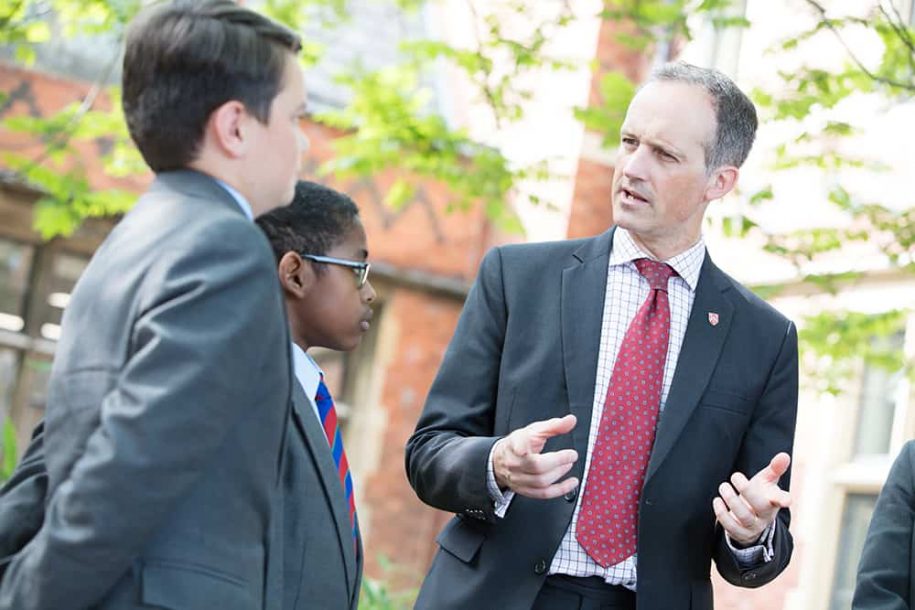Gareth Southgate: failure and redemption

The example set by sportsmen and teams is a frequent topic of school assemblies in a boys’ school. Many boys spend a lot of their waking hours thinking about football, rugby or cricket, imagining that they may one day emulate their heroes at the King Power or Welford Road. Earlier this term, I delivered an assembly on Alastair Cook, reflecting on how hard work and a refusal to be defined by his failures have helped to make him the iconic English cricketer of the 21<sup>st</sup> Century. My topic in yesterday’s assembly returned for a moment to the excitement of last summer’s football World Cup in Russia. Since the (relative) success of our national team, the country has taken the England manager, Gareth Southgate, into its hearts. Not only has he been credited with the renaissance of the waistcoat, but also with rebuilding national pride. Those of us with long sporting memories will recall, however, that it was not always thus.
Until very recently, Gareth Southgate has been forever linked with glorious footballing failure. The Summer of 1996 saw England host the European Football Championships. I am told that the whole country for the first time since World Cup success in 1966, got football fever. At the time, I was teaching English in France, so I instead had the rather surreal experience of squinting at a television in the corner of a dingy bar near Lyon while the locals studiously ignored me. I have very clear memories of the glorious day when England beat the Netherlands 4-1, and also of the (now familiar) feeling of emptiness when losing to Germany in the semi-final. For the non-football fans among you, I might explain that it was five-all on penalties and time for sudden death, when Southgate stepped up and missed his penalty, shooting tamely straight at the German goalkeeper. Despite looking like tournament winners, England had fallen short again.
It’s difficult to imagine the massive sense of failure one might be tempted to feel in such circumstances. Could any failure be more public? I am sure that, in private, Southgate must have suffered some difficult times. However, I recall the positive impression that he made on me in the aftermath, refusing to wallow in self-pity and instead looking to his next career challenge. In short, he refused to accept that one mistake would define his career or his life. He even made fun of himself in a celebrated Pizza Hut commercial when he appeared with a paper bag over his head – the joke being that he was too embarrassed to be seen in public.
Those readers who are not particularly interested in sport might wonder ask whether we have anything to learn from the trials and tribulations of a millionaire footballer. Whatever one thinks of the cult of celebrity, we all, children and adults alike, seem to need role models. For the sports fans among us, sporting competition is not just a pleasant distraction but it also arouses the emotions. In some sense, sporting competition provides a microcosm of the human condition. Our lives contain ups and downs; we have successes and we make mistakes and fail. These ups and downs for us occur naturally over a cycle of weeks, months and years. However, the sport that we watch is designed to produce a much more intense range of emotions, condensed into 90 minutes. We get emotionally involved with our heroes because they, like us, are flawed and we learn about how to respond to success and failure from their example, positive or negative.
Rudyard Kipling’s iconic poem ‘If’ urges us to treat <em>‘the two imposters Triumph and Disaster just the same’ </em>and there is certainly something of this sentiment in how Gareth Southgate has come full circle in the country’s emotions. When things go badly, we can be tempted to mope around and to want others to feel sorry for us. What is clear is that Southgate was determined that one failure early in his career should not be permitted to affect his future. Equally, my impression is that he is refusing to get carried away by the wave of praise that has followed him in recent months (and again this weekend with England’s win over Croatia and qualification for the European Nations Finals). As such, he is an embodiment of the idea that failure is temporary, and a fine example for our boys to emulate.
